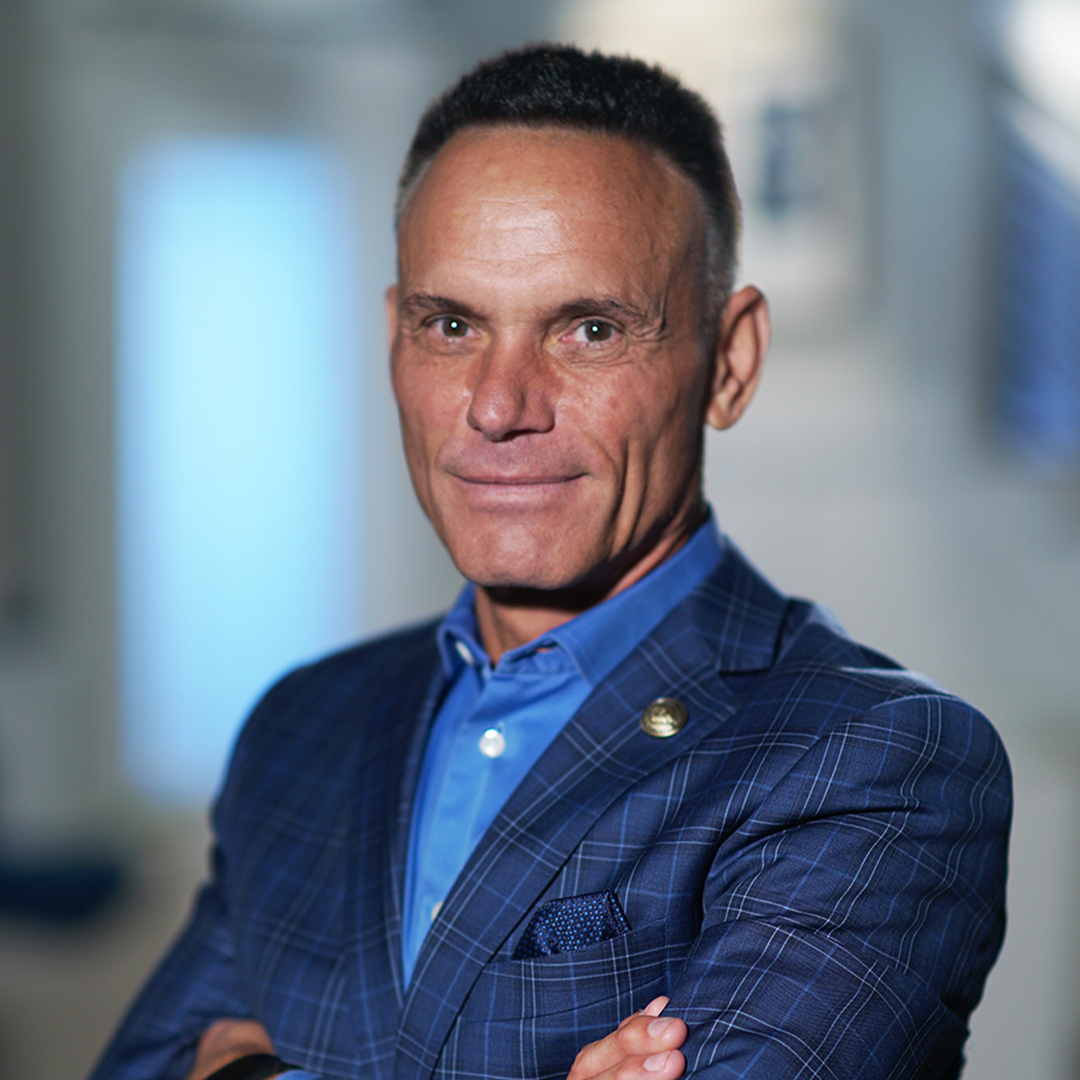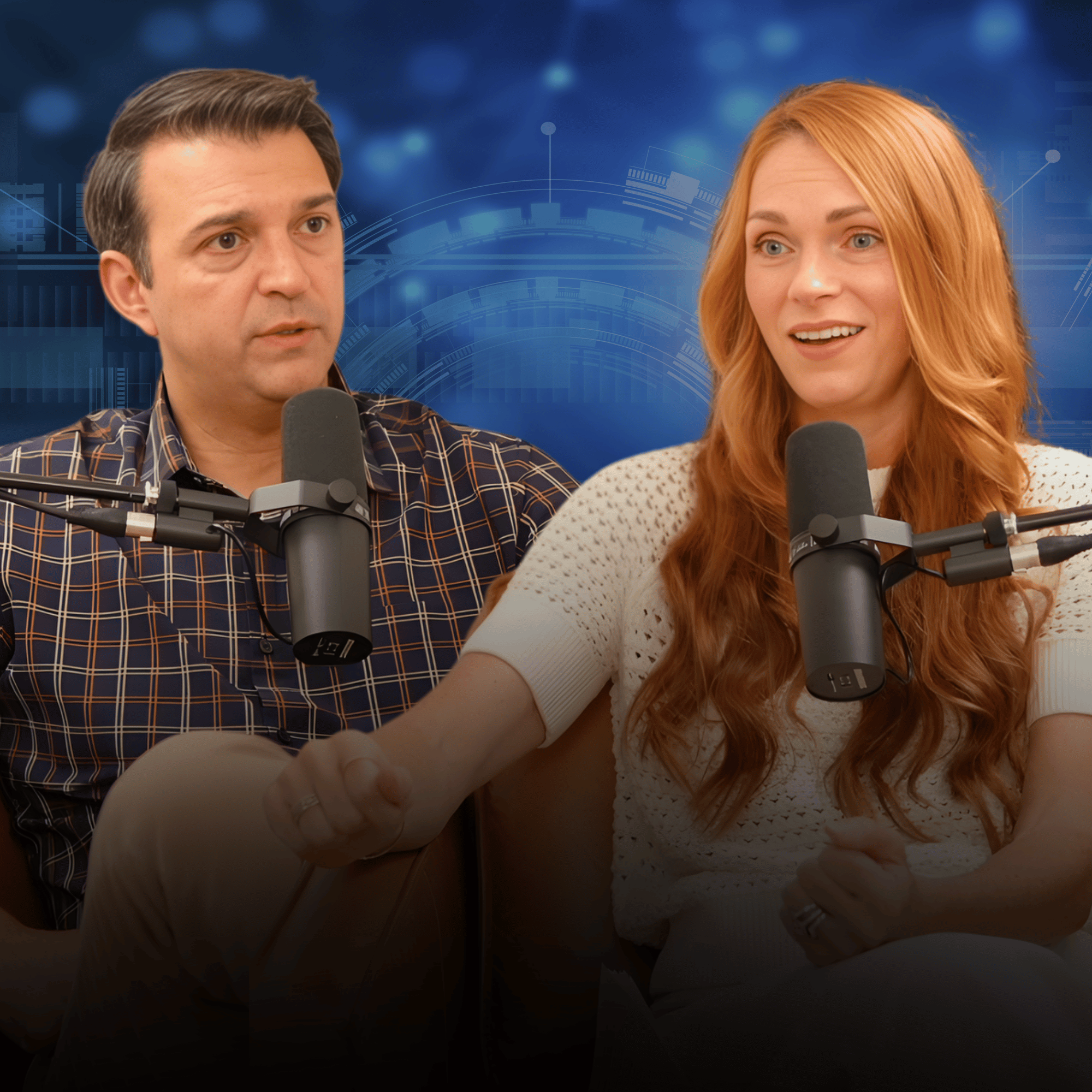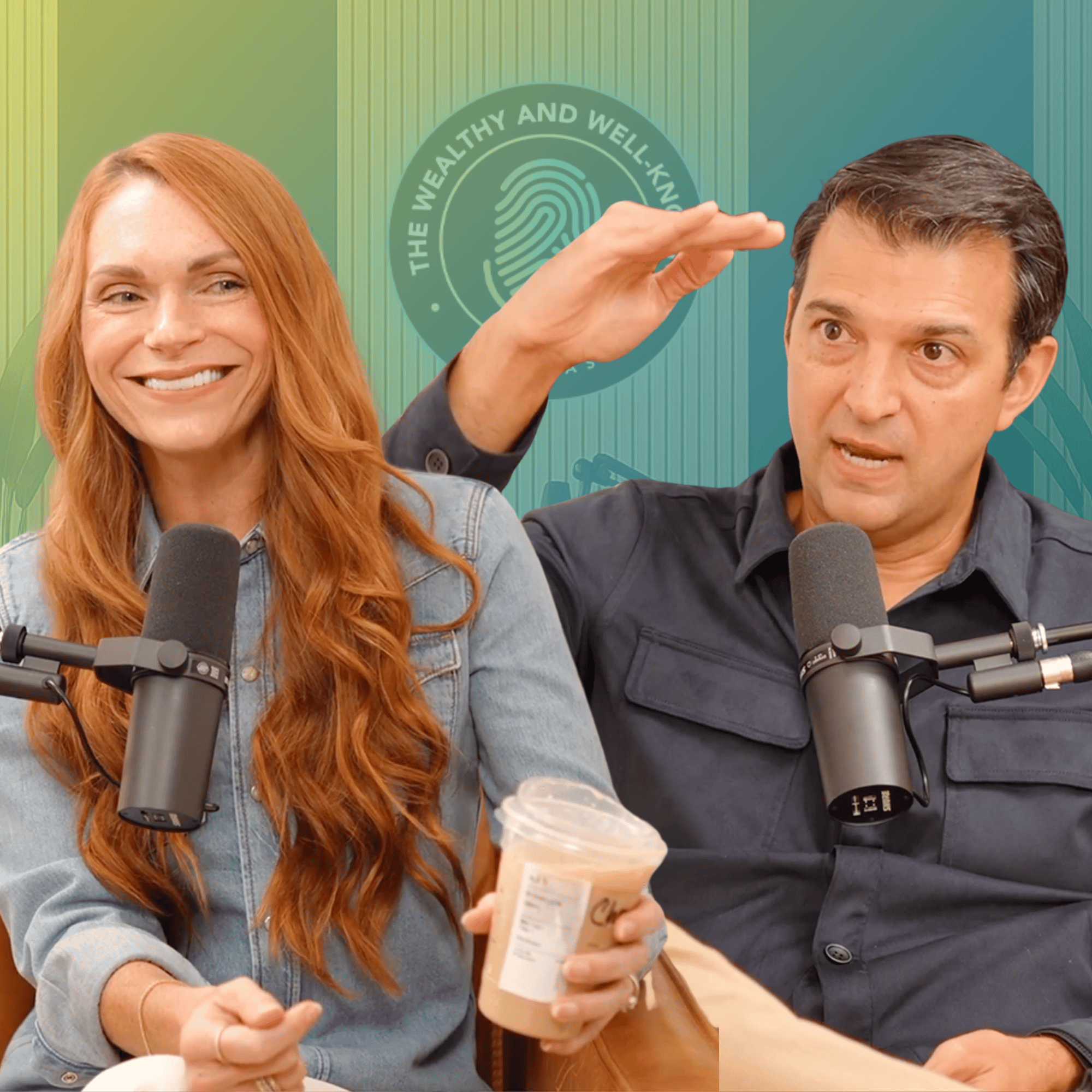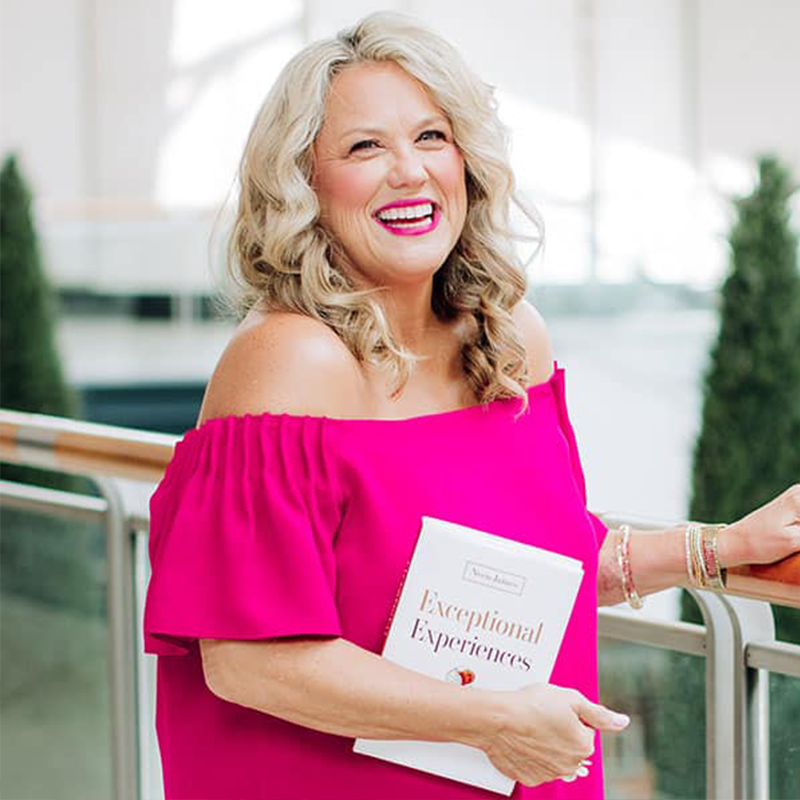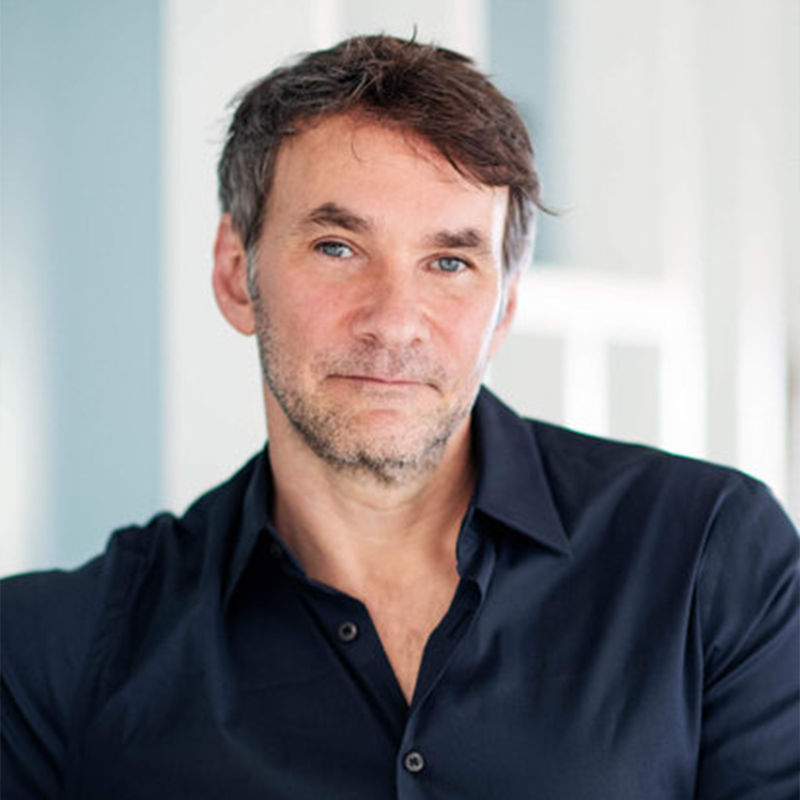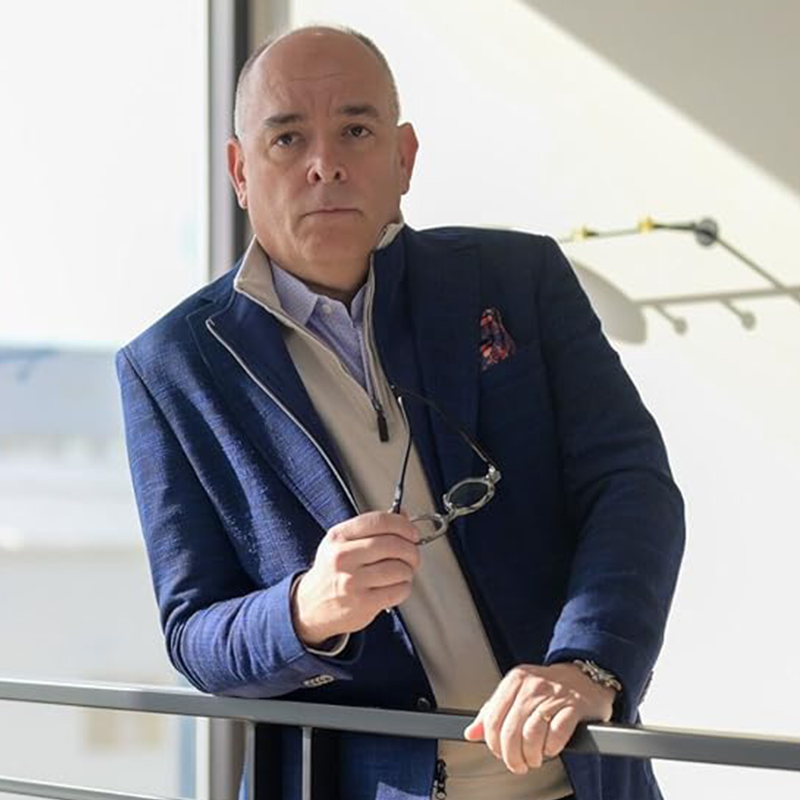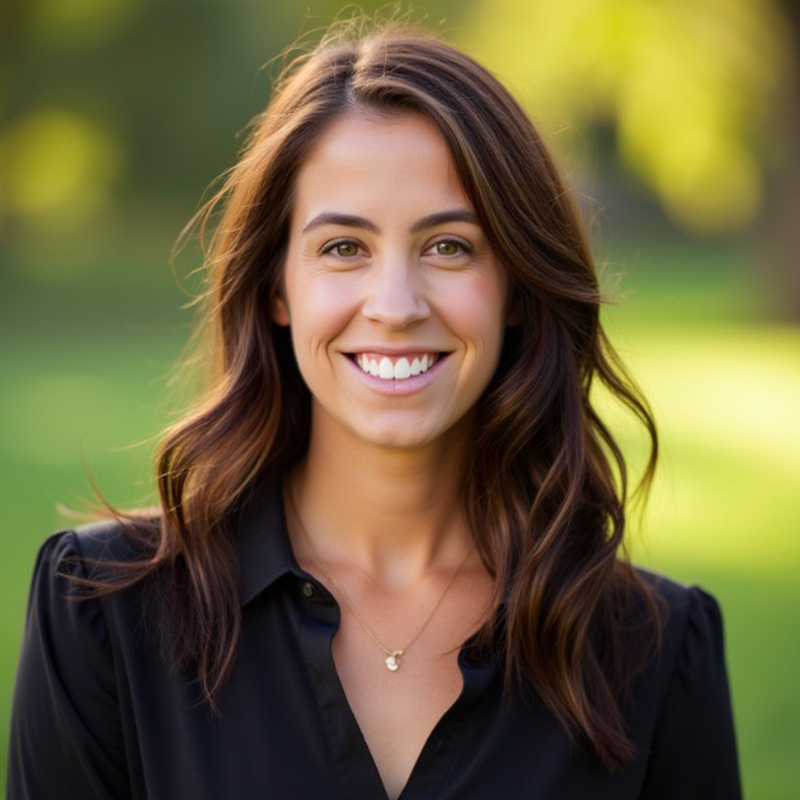Speaker 1: (00:01)
I am so excited to introduce you to this is one of those people where it’s like if you ever sat next to him on the airplane, you would have hit the Jackpot and the lottery and you, you might not realize you were sitting next to. But Kevin Harrington is a man that people literally try to strategize how they can get close to, um, he has become a celebrity in the world of entrepreneurs and inventors. You probably recognize him. He was one of the original sharks, the original shark, the first shark. Uh, I believe that was selected to shark tank, which has now been super successful. He is also one of the founders of, of infomercials and as seen on TV, like he’s one of the pioneers of that whole movement. He actually is the cofounder of entrepreneurs organization, which my wife and I are members of.
Speaker 1: (00:50)
I’ve spoken at several of their events, um, around the, uh, around the globe, around the country in my case. But it’s an international organization. And, uh, he has seen over 50,000 pitches, um, launched more than 500 products, generating $5 billion in sales. Um, he also is the creator of the secrets of closing the sale masterclass, which is inspired by Zig Ziglar. So He, uh, Zig Ziglar wrote a book, secrets of closing the sale. It’s just been rereleased with him and Kevin Harrington. Um, obviously zig has been passed away for seven, eight years now, but a was a mentor to me personally and also, um, to Kevin. So Kevin, thanks for being here. Uh, thanks for making time, Rory. Thank you. Great. Great to be here and thanks. It was a very nice introduction. I appreciate that. Thank you. What man? Like, you know, it’s one thing to talk about personal branding and brand builders group.
Speaker 1: (01:46)
That’s what we do, right? We help people build and monetize their personal brand. But really what we study is reputation and reputation as is. How do you build a reputation, how do you become trusted? And of all the people that I know that know the most people, I think you’re near the top, like of, of every like super influential person that I know you already know them and I know that your Rolodex goes far, far beyond that. So, and yet, you know, you’ve been in the world of sales and marketing for years and years and years and sometimes reputations go south in those industries. Uh, when you’re an investor and an entrepreneur, you know, those, sometimes those deals go south. There’s a lot of conflict and there’s fallout and you know, when you get to be your level of celebrity and notoriety, I know that, you know, people sue you for no reason and you know, so what is your philosophy on reputation in general? Like if we just start there, like you have been able to keep such a solid reputation over the years, how do you think you’ve been able to do that? I appreciate that. I think, and I’m going to go all the way back to the beginning because
Speaker 2: (02:59)
I think you need a foundation of, um, of, first of all, I think my foundation that I built my business on is, is respect for entrepreneurs, number one. And so, um, when you watch shark tank, there’s Mr. Wonderful. Uh, and, and I, and I always ask people, do you know why he calls himself Mr Wonderful? Because nobody else will. Okay. He calls himself that because nobody else feels that he may be. Mr. Wonderful. And actually I joke this, this is all kind of joking about O’Leary, Kevin O’Leary, but we used to on the show, we’d say he was the bad Kevin. I’m the good Kevin now. Like why, you know, I’ll take that they, you know, I wasn’t the one that came up with that the rest of the sharks were and, and it’s because when somebody would come out and make a pit, I wasn’t there to tear them down and rip them apart and tell them how stupid their idea was.
Speaker 2: (04:02)
I wanted to empower them even if I wasn’t going to invest. Because entrepreneurs are in a delicate situation. They, they’re fighting against coming home to their family, to their wives, to friends and talking about how they’re giving up their job. They’re investing their life savings into their idea. This is not an easy task. This is, this is a tough situation and you know, to, to have a full time job but be spending money on patents and on this and on that and going on shark tank to try to get, you know, an investment from a shark. This is what it’s all about. And I think today there’s more places to go to get funding. You can do crowd funding and yeah, you can go on shark tank, but that’s very difficult to get on. But I think going back to day one, when I got started, I was knocking on doors when I was 15 years old driving a bicycle cause I didn’t even have a drivers license getting the door slammed in my face.
Speaker 2: (05:01)
And, and so I learned the hard way. I learned my father was a bartender, saved up enough money to open up his first bar, Harrington’s Irish pub. And I started working in his bars and restaurants when I was 11 years old, 40 hours a week. So I, I, you know, worked hard, had to prove myself, had to pay my own way through high school, through college. So I looked at entrepreneurs as people like myself. I was in the trenches building and hustling to become successful. So when they come to me now asking for help and advice, I put myself on their level saying, what would I have to do if I were in their shoes pitching me now the investor that is risen above the, the, the ashes sometimes because that’s, you know, in the 500 products plus that I’ve done more than 300 of them bombed and they lost all my money. So, uh, you know, it’s, it’s not so easy every day. And I, and I say Winston Churchill had, it’s a great Chang success is being able to go from failure to failure without the loss of enthusiasm. Okay. So, uh, you know, it took me awhile to figure out, hey, I just failed. I’ve got to learn from that and, and, and go to the next step. But that’s what I do.
Speaker 1: (06:28)
I’ve gotten to know you. Uh, you know, we spent a bit of time together here the last couple of years, which has been awesome. And I think when I look at you as an investor, as a shark, I remember thinking after the first time I spent, you know, like a full day with you, it occurred to me, yet you’re not a, you’re not a shark at all. I remember you saying that you, you don’t even try to negotiate for a good deal. You negotiate for a deal that’s good for you and for your other partner because your, I remember you saying that, you know, your philosophy was not, where can I get the best deal? It’s one where everybody has a fair deal and everyone is motivated, um, you know, to, to, to win. And that spoke a lot to me. It was a very profound thing where I was like, wow, what, what a different way to approach negotiating. And I think, you know, in terms of your reputation and you know, over time, I think that’s what people are probably drawn to because they know that you’re, you’re fair. You, you’re, you’re fair.
Speaker 2: (07:29)
And I think I appreciate that. I think, um, when I go back to the early days, I met a gentleman named Arnold Morris. At the Philadelphia home show and he was slicing through Coca-Cola cans with the Ginsu knife and mufflers and things. And I cut a deal with him and put him on TV. Now Arnold said to me, Kevin, um, and he had his signed contract for the good shoe and the, and the knife sales, but he said, I’ve got other people that this is amazing what we’re doing. If I bring you other deals, can I get compensated? I said, absolutely. We put an addendum to the contract. He brought Billy Mays and he brought Sandy Mason and Wally Nash of some of those you may recognize and some you might not, but we did hundreds of millions and billions in sales that came from these projects that Arnold Morris brought. But he got compensated on all of it.
Speaker 2: (08:23)
And so on his, literally his deathbed, the week that he was passing away, he kind of knew it was coming close and he reached out and his wife said, Arnold needs to talk to you. And I said, oh my God. And she says, Yap, he’s getting very close. She’s, he had a stroke and this and that. And she’s, and I said, well, what does he want to talk to me about? And I’m absolutely, I’d love to talk to him. She said, he’s got a deal. He wants to pitch you. Okay. I’m like, you know, here is, I mean this amazing because he had to get this last feel out of his system before he could pass. I mean it was unbelievable that the, the way it went down, but you know, Arnold was an amazing man, did great things for many people, but these insults, so people say to me, you know, how do you keep getting all these new products?
Speaker 2: (09:18)
I said, I’m getting these products from people I’ve been dealing with for 30 35 years in 2025 years, 10 and 15 years. And people I dealt with two months ago. So it’s, it’s the roll of decks factor. As you mentioned, Rory, this is what creates a lot of magic for all of us. As you know, I call it the Golden Rolodex. And this is part of becoming, you know, it as you’re branding yourself and you know, get back to the concept of personal branding and things. Creating a golden Rolodex is, is, is an important step in that process.
Speaker 1: (09:52)
Yeah. Well, and, and so one of the other things I wanted to ask you about just, you know, as I think about what can I ask Kevin that I can’t ask anyone else is you’ve sold more on TV than anybody. I mean, I don’t know anyone. It would be only a few people in the world that you could even say has been involved with selling as much on TV. So I’m interested
Speaker 2: (10:14)
a couple that are up there in the same ranks, but I, I know, I never want to say I’m the top guy because there’s some pretty successful guys out there, but I’m right there in the top five for sure on a global basis.
Speaker 1: (10:28)
Moved a lot of product on TV. So one, I’m interested in understanding TV, like in terms of, you know, a lot of people that are building a personal brand. TV is like this holy grail of like, oh my gosh, if I could get on TV, it’s like Tony Robbins is on TV and Dean Grasiozi is on TV. You know, like you said, like Billy Mays and, and all of these like people who become these celebrity workout people, they, they do infomercials. So one is how does that business work? Like how does that happen? How does someone get their clothing line on QVC? Or how do they get their, you know, Dean Grasiozi has a book, right? He does an infomart. Like how would a person go about doing that if they said, you know what, I think I’ve got a program I could sell on TV. Like how do you do that?
Speaker 2: (11:17)
So, so let’s, let’s, I’ll step back a second. Cause it, it’s there, there’s a couple of different angles there. You said, how do you get on QVC? How do you get on TV like infomercial? So two different scenarios. But the bottom line is this TV has been very powerful for many, many years. For me. I started back in the early eighties when I was watching a just got cable TV and I’m watching discovery channel. It was actually channel 30 of the 30 channel package. And so I went to all the channels, ESPN and 24 hours sports and movies and HBO and MTV Music. I got to ESPN sports, I think I mentioned. Um, I got to discovery channel and there was nothing on the channel. There was actually just bars on the screen. So I called the cable company and they said, we as a cable company delivered to you what we get from discovery and they only deliver us an 18 hour a day block.
Speaker 2: (12:17)
Six hours a day is nothing cause they’re a startup channel. They can’t program 24 hours a day. So I went down how to deal bought that six hour block from discovery, not only locally, but I did an international deal. And so for a number of years I had exclusive rights to discovery channel a six hours a day. Okay. Now I was putting in my, I was putting Tony Little Jacqueline Lane, George Foreman, you know, all these different types of products, fitness juicers, you know, kitchen gadgets, whatever, right? And so we had an amazing success for many years putting people on TV. But the way it works is this, there’s all this sort of like downtime with all the TV networks and cable networks. There’s only a handful of places that won’t sell infomercial time, CNN, and, and I think, let’s see, CNN and ESPN, those are the two that you will never see a 30 minute infomercial on.
Speaker 2: (13:20)
But Discovery Channel lifetime, all the other channels of Bravo, we buy tons of time from all of them. So what you do is you buy a block, a 30 minutes slot, maybe you pay 5,000 for it, two thousand ten thousand whatever the number is. In the early days I watched it isn’t maybe 2000 to 10,000 is that a reasonable number for, that’s for cable broadcast. You can buy, for example, in Nashville, Tennessee, you could buy 30 minutes on broadcast television. On Saturday morning, we’ll probably gave $100, right? 30 minutes on Nash on, on, uh, that would hit all of Nashville. Okay. I’m in Tampa, Florida. I can buy time here for as little as $500 for 30 minutes slot. And, and you can even go to cable. The cable guys have some of their own local cable options for even less, maybe $200. So, so now you, by that time you produce the video that sells the product and now that when that airs, it’s, it’s got to generate more than the cost of the time in sales to make money, obviously.
Speaker 2: (14:36)
So you mentioned Dean Grasiozi, he goes, he goes into Tampa, Florida and says to his media buyers buy $20,000 worth of ads. And he’s expecting, now he’s selling his book, but he’s also driving people to a seminar. So his is a little bit different. Hey, buy my book, come to the seminar there. You know, his liquidation comes when people show up at the seminar and he sees how much, you know, sales he’s making from there. But that’s, that is his model is buy infomercial time, drive people to a seminar, upsell them into masterminds. But the fitness people that you see, like the Tony Little’s, when we’re selling the gazelle, for example, we spend 10,000 and media, we want to sell 20 to $30,000 worth of puzzles during that slot. That’s, that’s how it works. You look for at least a two time multiple of sales to the cost of the media. So if you spend 10 grand the media, you want to see 20 plus thousand in sales coming from that time. By
Speaker 1: (15:48)
amazing though, I am all over the country. Now. When you say the media, is that like buying the commercials to promote the show or that’s just buying like the 30 minutes?
Speaker 2: (15:57)
That’s just fine. The 30 minute block, you don’t need commercials to promote an infomercial. It’s a standalone sales piece. So yeah. So Saturday morning, let’s say we, we bought that $800 slot in Nashville on a broadcast station on Saturday morning. People are up there just going from channel to channel to channel on their cable box or the TV and they, oh, wait a minute, let me see what this guy, Dean Grasiozi Phil was talking about. Oh yeah. Well that’s pretty interesting. So they tune in, they get hooked, and this is why you need a good pitch or you need a good presentation in that infomercial because you’ve got to be able to hook them, grab them, and now they’re listening and now they’re going to take action. Hopefully. So you bought that time for $800 in Nashville. You’re hoping to get 1600 to $2,400 in credit card orders from that time. Bye.
Speaker 1: (16:53)
That is so amazing. I mean, it’s so interesting to me because it’s like this is the original webinar funnel. It’s just like buy traffic, drive people to a a one hour Webinar, do a presentation, deliver some value, make an offer, get it to buy. It also blows my mind where he’d go, why are infomercials always late at night? The reason infomercials are always late at night is because one night Kevin Harrington was sitting in his hotel looking at the discovery channel and found out that there were six hours in the middle of the night that nobody else bought and you went and bought it and that that became the homicide. That was the downtime. So can you talk about the, the, um, talk about the pitch a little bit for like, because you know what, there’s, there’s a difference between like selling to a person. You know, in our former life that was something that we used to do.
Speaker 1: (17:44)
We used to teach people to, you know, our, the, our former company used to do like one-on-one sales coaching. That’s very different than selling on a Webinar or selling from a stage or selling on an infomercial where you’re selling one to many. Um, so what do you think are some of the key principles there? Because the other thing, particularly with TV is I have to think like people are flipping their coming and going, so they may not be sitting watching the 30 minute block. They may only be there for like two or three or five minutes. I mean so exactly how do you construct that? Like what? Let’s say you went and bought the $800 cause that’s reasonable. Yeah. So now I have $800 how much do I need to spend on producing the show? Like the 30 minutes and, and what, what I put in that 30 minutes that I can use to like, you know, market my, my book or my Info, my video course or my seminar.
Speaker 2: (18:41)
So great question. Now you have to understand that you’re, you’re, when we talk about producing the show, you’re not producing it just for that $800 by you’re producing it to build a media schedule that might be two three, 400,000 a week in media. That’s generating. See that’s if you’re, let’s say you’re spending 200,000 a week on $800 time slots like Nashville time slot, right? So now you’re, you’re running hundreds of spots that each one is monitored and needs to perform at a two to three to one ratio, sales to media costs. Okay. So, so you say upfront, Dean, I talked to Dean about his show that he did with Larry King for example. I said to Dean, how long did it take you to shoot that show? And he said, Kevin, he said, you won’t believe this, but I shot that show live in 30 minutes.
Speaker 2: (19:44)
And I said, what do you mean? He said, well, I sat down, I, you know, I, I, Larry King is a professional, he’s been doing interviews all his life. I’m a professional. We talked a little bit first before we rolled the whole day. I gave him a couple of questions if he wanted to ask, but we just went live and boom, we got it. He said, we did some more footage just to have some more, but I mean that was sort of a live to tape. Turn the cameras on and film it now he had to do editing because he had testimonials. So he had the one day shoot filming with Larry. Then he had testimonials, then he had editing, but then he also had one other big costs. What was it? A fee? The Larry King. Okay. So Larry King, he’s probably, and this isn’t coming from Dean, so I don’t want to make, I don’t want to say, oh, Dean told me this, but if I had to guess, Larry probably gets anywhere from 75,000 to 100 grand to shoot that show.
Speaker 2: (20:44)
Plus he gets a percentage of you show. So what do you note now? What did Dean’s spend? He shot one day at Larry’s office. He shot a dozen testimonials. He shot, he had to do the editing. You have to pay Larry some money. He probably spent all in somewhere between 150 and $200,000 to shoot that infomercial. And that was a pretty easy one to shoot. So, uh, but he, he knows that the credible Biddle credibility of Larry is going to take this thing to a pretty good point. And, and so he’s now crushing it. He’s, I mean, I’ve seen his schedules in my local market where he’s running on three simultaneously at the same time, at two o’clock in the morning. Now let’s see, what am I doing watching it two o’clock in the morning. I as a business, I’m in the business I have to tune in.
Speaker 2: (21:44)
But I get logs from monitoring services of when these are errands. So I don’t have to actually be there live at 2:00 AM. But I get along from a company that says, okay, dean ran his show 122 times last week and here’s where it ran. I can get that information so I know where he’s running about how much he’s spending. Cause I know what those slots are worth. So if I can do a report and say, okay, Dean ran 122 times, he spent 350,000 in media last week. Okay. I mean that tells sophisticated the industry is and, and by the way, this is how people then decide whether they’re going to knock somebody off. Okay. They, they cheat somebody out there running a lot of media. They know what’s working because it’s bringing in, nobody’s running 350,000 in media. If it isn’t bringing back a return on investment, you don’t mean you find out on 10,080 or whether it’s working, you don’t roll it out to three 50 unless you’re getting that return on investment. Uh Huh.
Speaker 1: (22:51)
So, and, and, and this is like, who are you? Oh, you said you’re, you’re either calling a media buyer and you know, at that scale, but if you’re doing local, you’re just going to go to your like local cable channel or like you just,
Speaker 2: (23:04)
yes. Yeah. I mean, so like it, it’s, it’s no problem. Me Or you like I could call my local Tampa TV stations, you can call your local national stations, whatever. Um, you know, we can, we can all make a couple of phone calls. It’s on the rollout when like when I said Dean’s doing three 50 a week. When we did the Gazelle with Tony Little, that was a over a million a week in media span, generating over 2 million in sales a week. But that was hundreds and hundreds of slots. If you’re spending $1 million at 8,000 for some 800 for others, somebody has to monitor that and they have to buy it. Then there’s a traffic department that it goes through because you’ve got to, you buy it, then you send the tape, you’ve got to have an 800 number that’s tagged to that specific station so that when the sales come in, you know what 800 numbers tracked to that station. There’s all kinds of things happening behind the scenes, so there are media agencies that are in the business of buying media to the tune of if it’s 300,000 a week, 500,000 a week, $1 million a week, whatever it may be. Right? So that’s the important thing.
Speaker 1: (24:24)
The essence is really fascinating. I, I’ve never understood like the monetary, but even even going, okay at two to one ad spend, basically on revenue. You could do the same thing with Google ads or Facebook ads and you know, whatever is say, okay if I’m going to, I’m going to put $50 in in terms of Facebook ads, I need to make sure that $100 comes out before I go and spend 10 grand on Facebook ads. And so you’re looking for a two to one to three to one ratio. Um, so what about the content itself? Okay, so what needs to happen in that 30 minutes? Because again, I don’t the medium of that different, I mean it did TV. Yeah, maybe it’s not TV, maybe it’s a Webinar, maybe it’s on stage, but like what goes into the content?
Speaker 2: (25:08)
So, so now in the old days, and I, and I, cause there have been a few changes in the industry for 35 years. Infomercials worked pretty well, but there’s been a little bit of a disruption because there’s a lot of people that have cut the cord from cable and aren’t, you know, aren’t watching TV. There’s been a decline in DVD viewership has been pretty substantial. It’s a 50% decline in TV viewership in the last 10 years. And so the question is, where did these viewers go? Well, you just mentioned it. Facebook, Instagram, they’re, they’d gone to digital outlets, right? Google, youtube, et cetera. So, so now [inaudible] and there’s also another issue. 30 minutes is, is a long time. And let me explain the structure of a 30 minute show. There’s three 10 minute pods in a 30 minute show. Each one of the pods has a three step selling system that I’m going to call the teas, the please and the seeds all within each 10 minutes he’s police sees he’s police sees these please seat you, tease them with an attention getting problem. You please them with solutions to the problem, benefits to the product or service, magical transformations, some kind of demonstration maybe. But magical transformation is a very powerful please. You see a before and an after, right? And then you see like by having a irresistible offer, so t’s with attention getting problem please by solving the problem with magical transformations and cs creating an irresistible offer. And you do that three times in each 10 minute segment of the 30 minute show. So that’s kind of the blueprint for producing an infomercial.
Speaker 1: (27:07)
Wow, I love that. And so it’s really just a 10 minute it really, all you’re doing is creating a 10 minute and then you’re just repeating
Speaker 2: (27:14)
the same. You don’t actually, you, there are some people that actually just do one 10 minute repeated three times. I don’t like to do that because if people sense that, but the formula, yeah, so I mean what we’ll do is you can tease please and seeds, but you just use different testimonials and you know, it might be the, it’s going to be the same seeds, the same irresistible offer in all three closes, but you don’t necessarily have the same content teasing and pleasing along the way.
Speaker 1: (27:49)
Wow. That is so interesting. I mean, that’s such a simple process, but it also very sophisticated in terms of knowing the, knowing the dollars in which markets are producing. And, and it just, it blows my mind though, how like this is, even though people might not say it, this was the genesis of webinar funnels a and video. Any, you know, any, any modality of selling on camera? Like this was where that started.
Speaker 2: (28:16)
I’m going to give you a good example of something that we learned quite a bit on. Uh, a guy came in my office one day to do a, he had a fishing lure and he’d been watching Tony Little and George Foreman and Jacqueline Lane and all these great things we’re doing. And he, he puts this lawyer in front of me. He says, Hey, this is the most amazing lure you’re gonna want to do this. And I said, why is it so amazing? And he said, I have a pad and said, all the words hit the water drop straight down. Mine hits the water and it’s reverse rig to swim away like a wounded fish. And so I said, I’d love to see that in operation. We went out and showed how it was swimming away and fish were attacking this floor. We had this big hog draw, 20 foot long fish paint that we cast the lure in and saw some amazing demonstrations, catching fish that lures, we’re going straight down regular lawyers dish when just watching them drop, the flying lore went in and they’re chasing it around and biting it and catching fish.
Speaker 2: (29:14)
So, um, when we first tested the show, we ran on a lot of cable networks and the media buyers called back and said, the show didn’t work. I don’t think fishing’s going to be a good category. Um, it’s not successful. And I said, let me get some demographics. I want to see where the orders came from. You know, fishing is, you know, may be, it’s not some universal, we found La and New York, it didn’t have any traction, but in Missouri, in Ohio and Michigan and various areas where there was lakes, it was crushing it. So people aren’t in New York City going out and fishing every weekend. But in Kansas City, they would love to go fishing on the weekends, the lakes and places around. So now we stopped running cable. We went back in. So our cable for, you know, 10 grand in media is generating 5,000 in sales.
Speaker 2: (30:09)
But when we went and targeted local markets like Nashville, Cincinnati, Duluth, Minnesota, we were doing five to one on our buys because we were crushing it in these local markets. So we decided we’ve got to stay away from the coastal communities. This is not fishing lore because first of all, this young lords are generally kind of fresh water and, and, and in the, in, in New York and La, they’re on the ocean. We don’t even have a product yet for that. But in the central parts of the United States, we crushed it. This product went on to do 500 million lures at a dollar a piece, 20 to a pack, 20 bucks for 20 lures, $500 million in sales because we tracked it and focused on buying time where it works.
Speaker 1: (31:02)
Wow. Um, Kevin, I could talk to you all day about lots of stuff. Uh, we are out of time. Uh, where did, should people go? I know you have, you know, the secrets of closing the sale book was Zig Ziglar just came out. Uh, you have your secrets of closing the sale master class, which, you know, maybe we’ll put a link to or we’ll, you know, we’ll audience when you open that class up where else, but where should people go to connect with you and you know, if they want to stay in touch.
Speaker 2: (31:28)
Yeah. My, my website’s a great place because we have some free reports and some free books and chapters and things. It’s Kevin Harrington. Dot. TV and Harrington spelled h a. R. R. I. N. G. T. O. N. So Kevin Harrington. Dot. TV is my website and I’m got a lot of good content there and you can see some videos and see some things we’ve done over the years. But we also, I’m actively still looking for great products, great relationships. I sit on several, uh, board of directors of public companies and, um, I love doing that and, and helping, uh, you know, I invest money, I help raise money. Definitely am available for, for entrepreneurs looking to take their business, their idea, their service to the next level. It’s a good place to start. Kevin Harrington. Dot. TV.
Speaker 1: (32:20)
I love it. So last little thing. At some point in your journey, uh, you must’ve bumped up against some walls. I, I know that it’s been several times, right? Uh, and it’s, uh, it’s a long way between the guy who was on shark tank and you know, that kid that was knocking on doors and there were gotta be several setbacks. And, and my guess is there’s somebody listening
Speaker 2: (32:40)
right now who is trying to build a reputation either as an entrepreneur or an influencer, and they’re probably in one of those darker times. What would you, what would you say to that person right now? So it’s a great question. 25 years ago, I was sitting with $100 million business. We’re doing 2 million a week in sales. We had 10 products. And one day I was thought I was on top of the world, walked into my office on a Monday morning and my CFO said, I got terrible news. The bank just grabbed $2 million out of our account to apply as a reserve against future returns and chargebacks. Um, and, and I said they allowed to do that and said in the contract they have every right to increase the reserve and just grabbed the money out of our account. Okay. I’m like, wow, I can’t believe that actually signed that.
Speaker 2: (33:33)
But when you get those big thick documents, when you get a merchant account somewhere in there, it, you know, they basically tell you no more and grab the monies that are coming through for processing. And so we were technically out of business at that point. I went from, you know, being the king of, of infomercials, you know, to potentially being at the bottom of the barrel. And because that 2 million was my working capital, I didn’t have 10 million sitting in the bank. Okay. I was a young entrepreneur. I had, that was my cashflow. That was my payroll. That was my media dollars, my inventory dollars. Basically, we couldn’t make payroll that week then. And the bank, you know, whether they knew what they were doing or not, they didn’t care at the time. Now we figured out a way to get around some of this. We, we, we, we, we, we pulled a lot of great advisors to the table because they technically put us out of business and it was a very demoralizing time of my life and we had to do some massive things, you know, to make that all happen and save the company.
Speaker 2: (34:39)
But we ended up pulling out of it, coming out smelling like a rose. But the only thing I can say is this, is that I all my life, um, have looked to mentors and folks to be part of my team. And because in the early, early days, I tried to do it all myself. I realized I can’t do it all with Michelle. I, I’m not the operations guy, the finance guy, the guru of finance. But I brought in Gurus of finance. So, um, one of my guys went up against the bank and knew how to kind of get them to come to the table. We ended up getting 1.6 million of that 2 million back. So we did give him 400,000 but we saved the day, got some money back. We’re eight, but took 30 days to pull all this off. So, uh, the bottom line is, is that this is kind of what I do now for entrepreneurs.
Speaker 2: (35:37)
I’m a mentor, I’m a coach, I’m a consultant, I’m an advisor, I joined boards, I joined advisory boards that the right kind of opportunities. I’m out there looking for great companies to be an advisor to because sometimes I’ve seen people make the same mistakes with things that I was confronted with in the past. And I can show people, entrepreneurs how to deal with these things without letting it take you down. So bottom line is you, you’re not, you know, Kinda need to know that there’s a good group of people out there that may be available for you to be mentors in your business. And I, you know, just like I started off talking about how Zig Ziglar was a mentor to you, Rory, to me. Um, absolutely. I’ve had Richard Branson helped me with some digital things. At one point, I went to Necker island, hung out with him for a couple of days. My father mentored me. Mark Burnett mentors me. Yes, I’m, I’m a successful entrepreneur. I’m an original shark from shark tank, but I’m a product of many other mentors that have helped me become what I am. And I think that’s, uh, I’m the first to say that I couldn’t have done it all my on my own. And I, and I, I look to outside resources to help me manage my entities and my businesses and hopefully folks that are out there can, can learn from that too.
Speaker 1: (37:03)
I love that. That is so cool. I think, uh, that’s been the big surprise for a j and I with brand builders group. It’s turned into such a community of people supporting each other and getting to learn from people like you. It’s just incredible. So thank you for your inspiration and your story and your friendship and, uh, we wish you the best.
Speaker 2: (37:23)
You Bet. Take care of buddy. Good being here today. Thanks.




